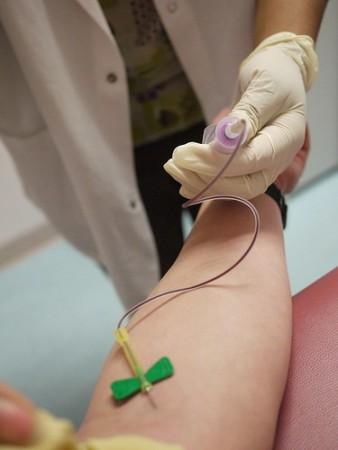
A simple blood test can help diagnose breast cancer early.
The new test, developed by a team of American researchers, works by identifying the presence of breast cancer cells from serum biomarkers.
Researchers from the Houston Methodist Research Institute and New York University Cancer Institute, conducted experiments on mice models and breast cancer patients, and found that a mixture of free-floating blood proteins created by carboxypeptidase N or CPN (an enzyme that plays a major role in modifying proteins after they are being created), accurately signalled the early stages of the deadly disease.
"In this paper we link the catalytic activity of carboxypeptidase N to tumor progression in clinical samples from breast cancer patients and a breast cancer animal model," biomedical engineer Dr Tony Hu, who led the project, said in a news release. "Our results indicate that circulating peptides generated by CPN can serve as clear signatures of early disease onset and progression."
The test, that combines nanotechnology with advanced mass spectrometry, is effective in detecting even the small proteins from the cancer cells that appears in the blood after being modified by the enzyme. "Even at the eighth week, CPN activity was still significantly higher than baseline," Hu said.
Breast cancer is one of the leading causes of cancer deaths among women across the whole world. According to the World Cancer Research Fund International, breast cancer is expected to claim nearly 2.1 million lives every year by 2030. It is normally detected during stage 2, when patients start showing symptoms like pain and fatigue. So the findings are expected to bring new hope in fighting the disease.
However, the preliminary findings will take years before being fully implemented into practice. The study has been published in the journal Clinical Chemistry.
Similarly, last year a team of researchers from the Kansas State University in the US developed a blood test that can give accurate details of the early stages of breast cancer, within less than an hour. The test also worked by measuring enzyme activity in the body.








